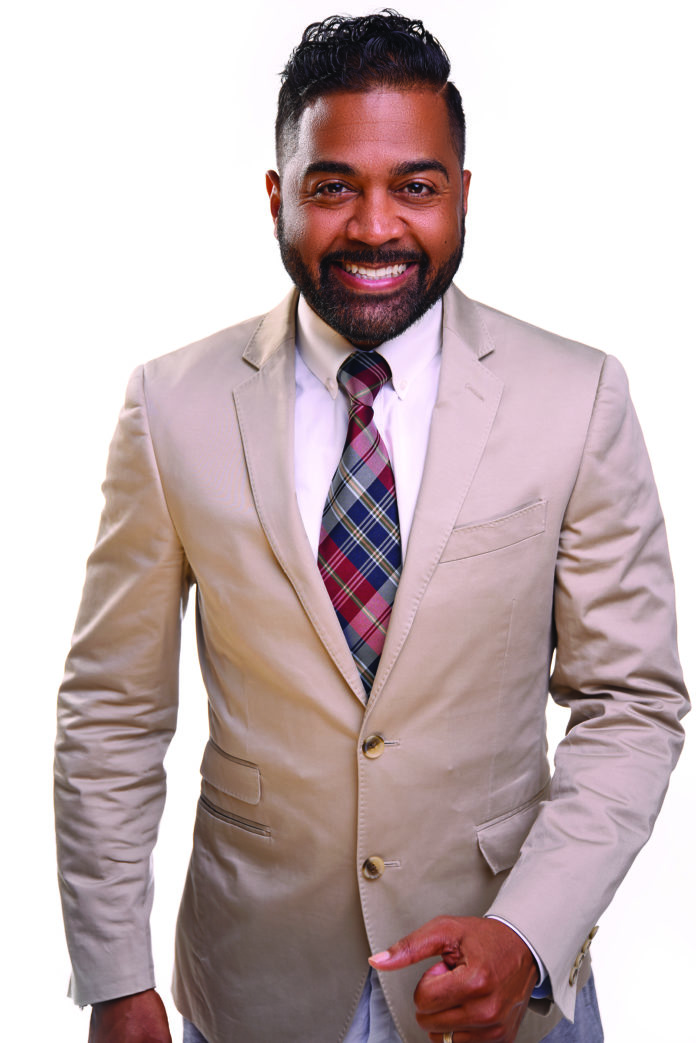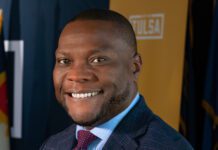Phil Armstrong, president and CEO of the Oklahoma Center for Community and Justice, began his tenure in February 2023. Prior, he served as interim director of Tulsa’s Greenwood Rising Black Wall Street History Center, and as project director of the 1921 Tulsa Race Massacre Centennial Commission. In those roles, he handled everything from stakeholder communications to donor relations, construction and daily operations of the museum.
An Ohio native, Armstrong has lived in Tulsa for 25+ years and worked in community development and the non-profit sector for over two decades. We caught up with Armstrong and got his thoughts on …
… what drew him to the Oklahoma Center for Community and Justice.
The impactful history of the mission of the organization, from its inception in the 1930’s as the National Conference for Christians and Jews. Although the iterations of the name have changed over the years, the soul of the organization has remained resolute. Additionally, being able to create new programming – the Youth and Leadership Forum for Community Transformation – with my predecessor Moises Echeverria back in 2020 after the summer of George Floyd, in collaboration with the founding of Greenwood Rising Black Wall Street History Center, was the foundation that led to this natural fit for me and OCCJ.
… what the OCCJ does for Oklahomans.
The mission is to inspire and equip Oklahomans to overcome bias, bigotry and oppression. We mainly focus on impactful educational programming with youth, as well as adults, through three donor funded programs: Anytown Institute; the Inclusion Leadership Institute; and Youth Leadership Forum for Community Transformation. OCCJ has a proud legacy deeply rooted in the community. Our programs and initiatives are focused on celebrating both our differences and our shared humanity.
… his favorite memories with Greenwood Rising.
One of my favorite memories was the joy of building pivotal relationships across many spectrums in our community: between corporate and nonprofit, north and south Tulsa, Black and white, young and old, conservative and liberal, religious and non-religious. I was able to witness people from so many different backgrounds set aside many of the arbitrary barriers that incite division, and open doors to allow all to “lean in” together to learn about this tragic yet triumphant history, and begin the steps toward repair and reconciliation. Of course, that work must continue, but I am so grateful that so many lives were impacted in such a way that this city, this state and this nation can build upon for future generations.
… from where his passion for community development stems.
Initially my mother and father. They are both lifelong community servants. My father served thirty years as a pastor. My mother served most of her life as a community leader in social work, a college student affairs dean and a family historian. I watched them model out for me, on a daily basis, what it meant to be a “change agent” in the community in which they lived – Bidwell, Ohio. My passion for this work comes from them.
… any surprises at the OCCJ.
Yes! The small yet mighty staff of OCCJ are jewels! I, in a short time, have come to understand their passion and work ethic and have been so pleasantly surprised by how engaged and meticulous they are for the implementation of our hallmark programs.
… what he wishes more people knew about the OCCJ.
Actually, I wish more people knew, from the outset, what our ‘OCCJ’ acronym stands for! Most Oklahomans are unaware of who we are. I promise you, that’s going to change!
… how he stays inspired.
I carry with me many quotes from great leaders in history to keep me inspired on the most challenging days. One of those quotes seems to be resonating with me more and more: “Fight with passion for the things you believe in, but do it in such a way that others will want to join you.” – Ruth Bader Ginsburg
Main image credit: Photo courtesy Phil Armstrong


























